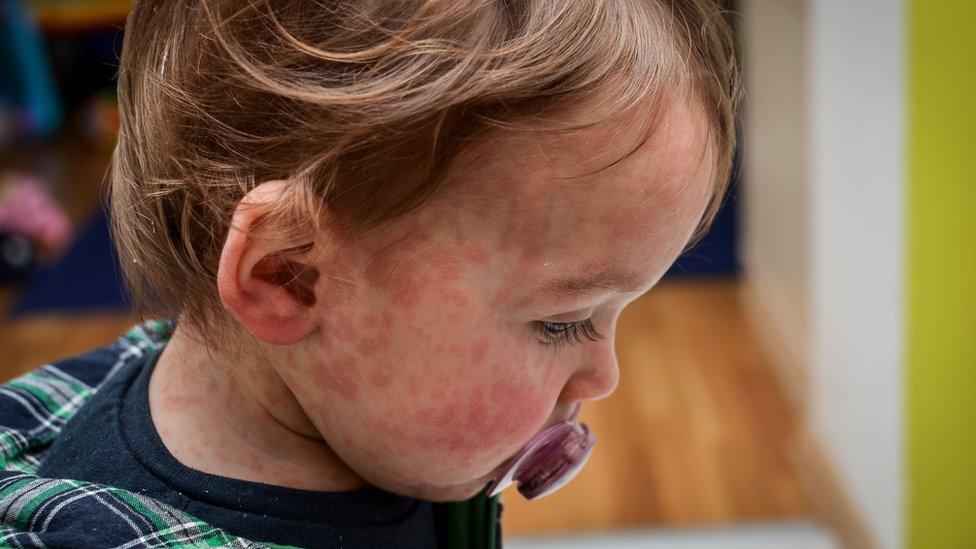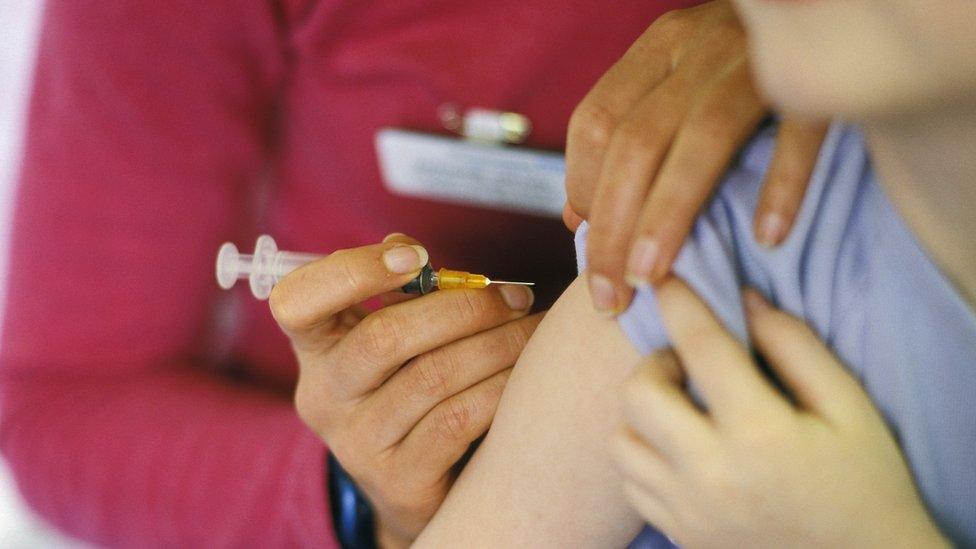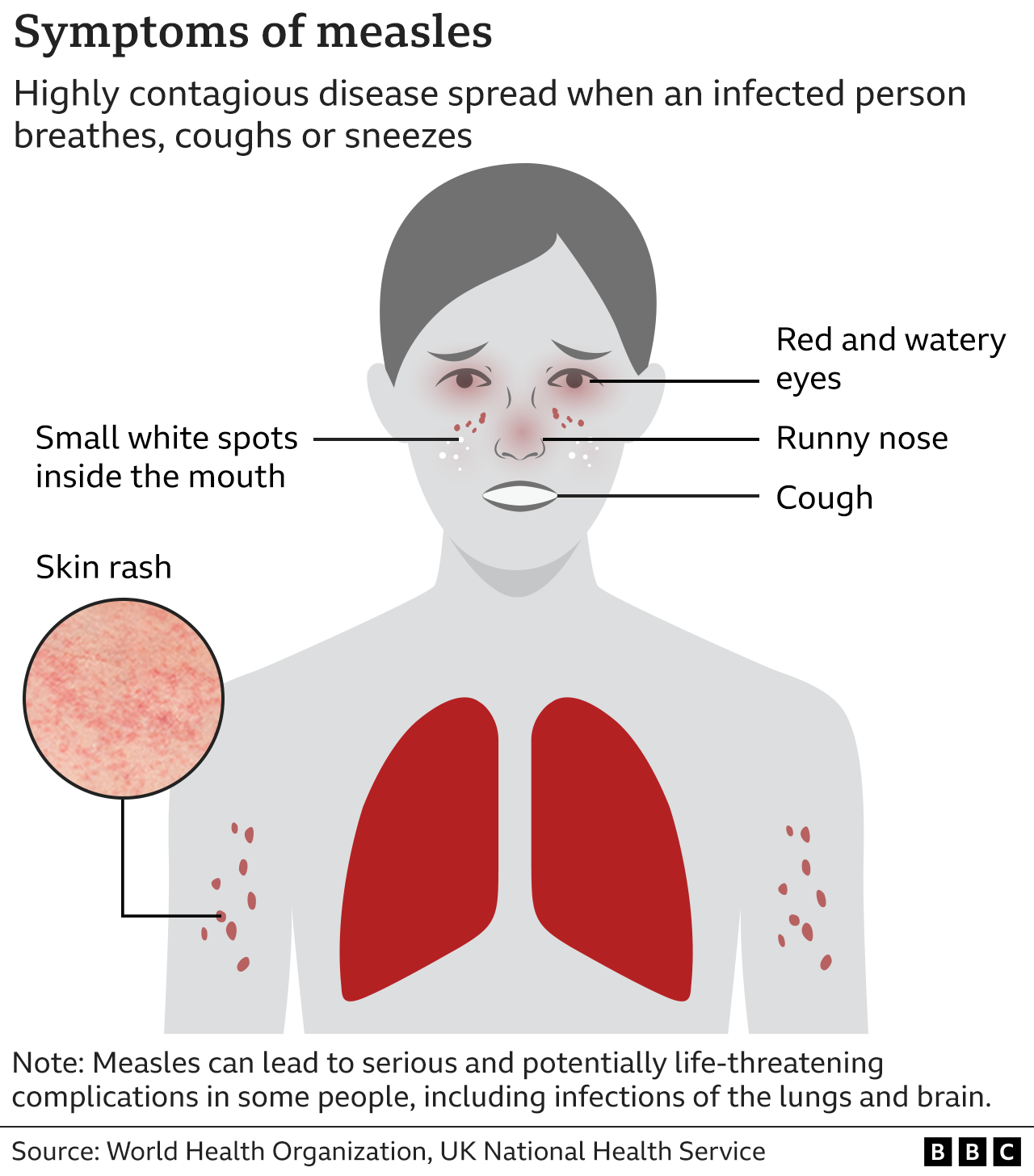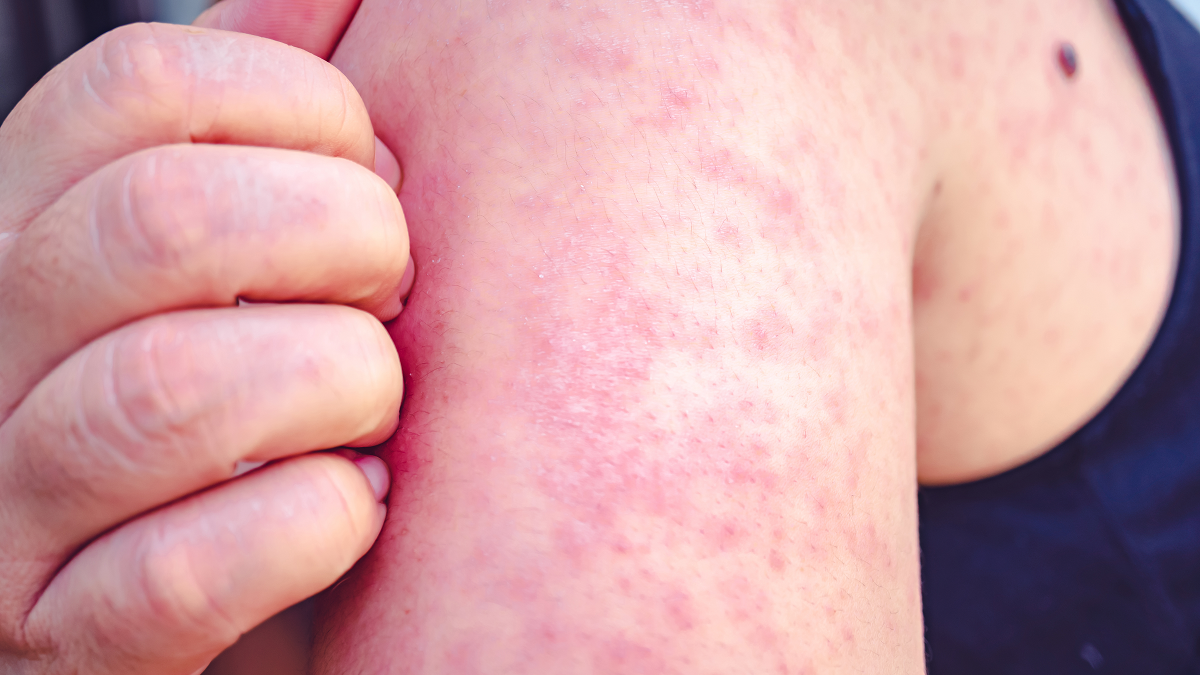Measles: Cases in Northern Ireland 'only a matter of time'
- Published

There have been no confirmed cases of measles in Northern Ireland for seven years
Health officials are warning it is only a matter of time before there is an outbreak of measles in Northern Ireland.
No cases have been detected in the region for seven years.
However, cases have been rising across Great Britain and Ireland in recent weeks.
Stormont's deputy chief medical officer, Dr Lourda Geoghegan, said it was now likely new cases will be seen in Northern Ireland.
"While there have been no confirmed cases of measles in Northern Ireland since 2017, it is only a matter of time before the illness is reported here," Dr Geoghegan said.
She said the Department of Health was working closely with the Public Health Agency (PHA) "to monitor our situation locally".
The warning comes after the death of an adult who had contracted measles in the Republic of Ireland earlier this month.
That has sparked increasing concern among authorities of a potential island-wide outbreak and heightened concern of dropping vaccination rates.
The department said official figures showed the uptake of the measles, mumps and rubella (MMR) vaccine in Northern Ireland was behind that recommended by the World Health Organisation (WHO).

The World Health Organisation recommends 95% of children receive both doses of the MMR vaccine by the age of five
Almost 89% of children in Northern Ireland have received their first MMR jab, but fewer return for the second dose with only 85% of children fully vaccinated by five years old. WHO recommends a 95% vaccination rate.
A PHA vaccination catch-up campaign is now under way in Northern Ireland.
"It is important that everyone is aware that the most effective way to prevent measles is by maintaining a high uptake of two doses of the MMR vaccine," Dr Geoghegan said.
She added: "It is essential that our uptake of the full course (two doses) of the MMR vaccine in Northern Ireland is increased and we all act now to address the threat of measles".

What are the symptoms of measles?


Dr Geoghegan said because it has not been seen regularly over recent years people can overlook its severity.
"Measles can cause children to become very sick and some who contract measles will suffer life changing complications," she explained.
"We need to remember that measles can cause serious infection and illness in adults."
The PHA's Dr Joanne McClean said the fall in vaccination rates "opens the real possibility" the disease will spread again In Northern Ireland.
She is concerned people may have become complacent to an illness thought to have been consigned to the past.
"Measles can kill, as we have sadly seen over the past week in the Republic of Ireland," she said.
"That is why it is essential that we maximise our efforts as a community to boost MMR vaccination rates and be aware of the signs and symptoms of measles given the live threat that it poses and the risk of spread."
Related topics
- Published8 February 2024
